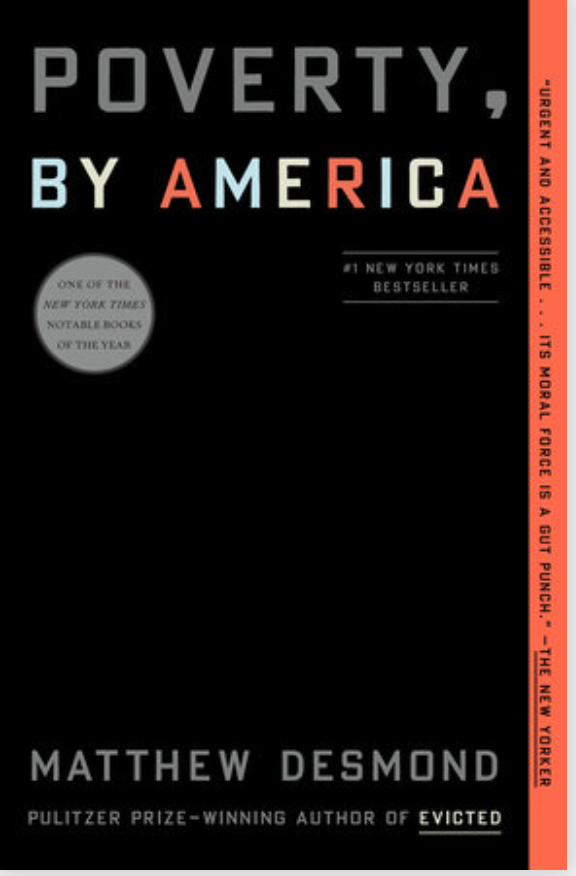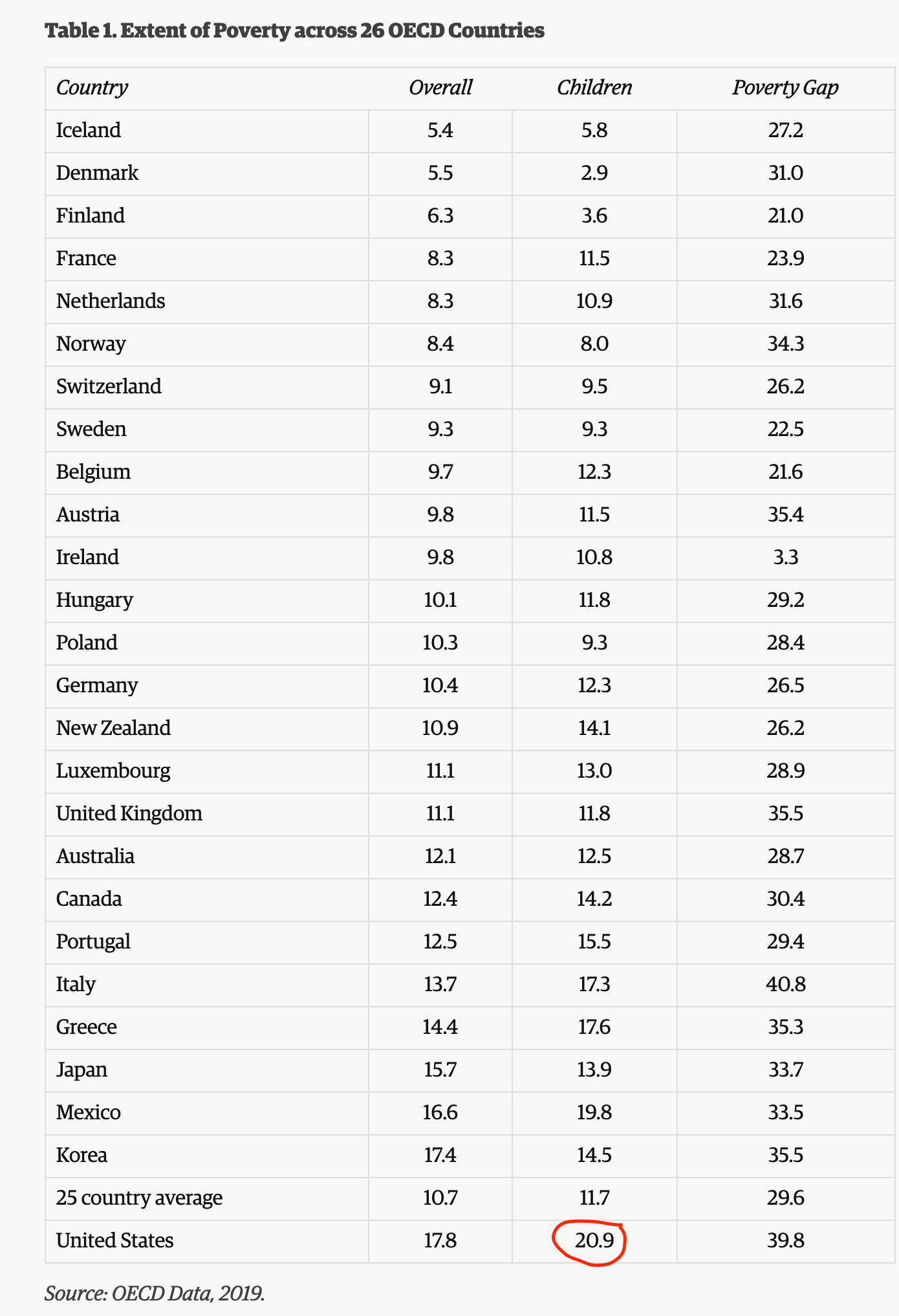I write often about the importance of poor and working-class students understanding the circumstances of their lives as they pursue degrees. Matthew Desmond's Poverty, By America would be an excellent place to start. It's highly readable, packed with data and infused with moral arguments that high childhood poverty rates in the U.S. are rooted in deep cultural beliefs in the myths of meritocracy: that material success is evidence of personal worth. Conversely, much policy in the U.S. is rooted in the belief that the poor are essentially responsible for their own circumstances.

Desmond writes, as many others have, that childhood poverty rates are much higher in the U.S. than other western nations. Further, designations of "poor" (and therefore eligibility for government supports) are at lower income levels than the average income in the U.S. than in most countries as evident in OECD data:

Obviously, Desmond writes, such data do not suggest that other countries simply have better and more responsible people. Instead, he argues throughout the book, public policy in the U.S. is grounded in beliefs that the poor are unworthy. They don't simply need more money. They need to be incentivized to become better people.
Yet when he wrote the book, 1 in 18 people in the U.S. lived in "deep" poverty.
He writes of conservative political discourse steeped in false beliefs in "welfare dependence". Thus states have routinely held back money that otherwise might have gone directly to families to instead fund moral projects: abstinence-based sex education, crisis pregnancy centers, or work programs that steer people into low-wage dead end jobs. Far from widespread "dependence", a fraction of those eligible ever apply for federal aid, and the overwhelming majority of recipients use benefits short-term, in part because application and eligibility protocols are so onerous and stigma for those receiving these benefits is high.
Desmond infuses his data with the personal: A young woman aging out of foster care faced a six year waiting list for subsidized housing - the only housing that that she could afford. A family struggled with debt to payday lenders when no banks would loan them money. He writes of the shift from full-time to part time work and the precarity of those part-time jobs with stories of people juggling multiple part-time jobs. He writes of Black families living in ever-more segregated neighborhoods that are less safe, have fewer public amenities, and have less-resourced schools.
These beliefs that those who live in poverty are lesser people has justified communities and schools becoming increasingly segregated by income so that more privileged people rarely see or share public resources such as parks or transportation or public health and emergency services with them. Public support for social safety nets falls so short because the privileged are convinced that their material comfort is evidence of their own worthiness.
In a country with such vast inequality, the poor increasingly come to depend on public services and the rich increasingly seek to divest themselves from them.
We wish the freedom to withdraw from the wider community and sequester ourselves in a more exclusive one, pulling further and further away from the poor until they world they inhabit becomes utterly unrecognizable to us.
Yet, Desmond demonstrates, the privileged themselves benefit from public support via benefits that carry no stigma. For example, the deductions for mortgage interest for middle class families totals $193 billion – a much higher public cost than direct subsidizes for housing assistance for low-income people at $53 billion. A complicated tax code interpreted by expensive lawyers means that the wealthy collectively avoid taxes on billions of dollars annually.
Desmond argues for policy that breaks down economically segregated communities: Zoning that supports affordable housing in all neighborhoods, vouchers and other supports that allow families to move to more economically diverse neighborhoods. He calls for financing for residents of affordable rental housing to purchase their units and their buildings and other reforms to mortgage policies to make home ownership more widely available.
When families across the class spectrum send their children to the same schools, picnic in the same parks, and walk the same streets, those families are equally invested in those parks, those streets.
I think often about how common terms describing first-generation students ("soaring" or being the "first to fly" or being "pioneers"_) are also morally infused and imply that poor and working-class students who do (finally) make it to college deserve applause for making individually braver and more ambitious choices than others in their families. I wonder about the challenges that first-generation students face in sustaining respectful relationships with families when so much of the discourse in college is about the meritocracy. If you work hard, you'll reap the rewards of college, they're told. Material success is evidence of personal worthiness. Parents, then, must simply not have been willing to try hard enough. None of this is spelled out, but few other explanations for class inequalities are evident in the resources offered to first-generation students; students are left to figure these thing out for themselves while they're also trying to figure out the hidden curriculum, social relationships, and majors.
Desmond gives us a much more complicated story of policy working against poor and working-class students and their families, of growing public indifference to economic inequalities, of muddled political discourse about worth and worthiness when the issue is everyone having a safe home and food.
First-generation students deserve to understand the circumstances of their own lives. We can work to be sure that everyone on campus reads and discusses books like Desmond's to better understand how social class inequalities persist in the U.S., in large part because of the (im)moral choices of the privileged.




